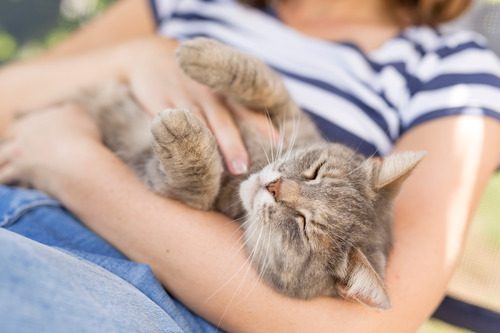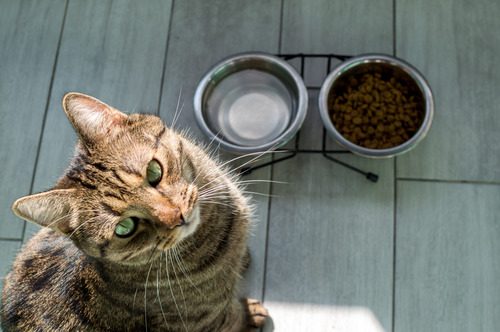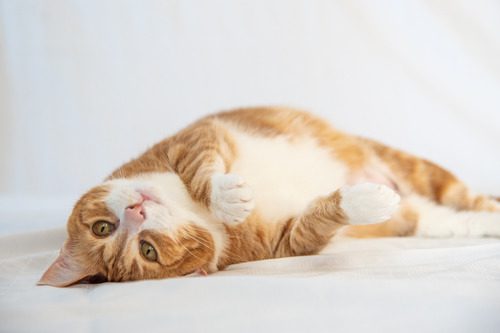Why Doesn’t My Cat Purr?
Cats are known for their mysterious ways, and their purring is one of the many behaviors that fascinate and delight their human companions. Purring is often associated with contentment and comfort, but what does it mean when a cat doesn’t purr? If you’ve noticed your cat isn’t purring and you’re curious about what this might indicate, you’re in the right place. This blog will explore the reasons behind a cat’s silence and what steps you can take. If you’re concerned about your cat’s health or behavior, call Companion Animal Hospital of Wakefield at (919) 488-5300 to schedule an appointment with our caring professionals.

Understanding Purring
Before diving into why some cats might not purr, it’s important to understand what purring is and what it signifies. Purring is a form of communication that begins in the brain. A rhythmic, repetitive neural oscillator sends messages to the laryngeal muscles, causing them to twitch at a rate of 25 to 150 vibrations per second (Hz). This movement controls the vocal cords, and when the cat breathes, the air touches these vibrating muscles, producing a purr.
The Many Meanings of Purring
Purring is often a sign of contentment, but it’s not limited to expressing happiness. Cats may also purr when they’re hungry, stressed, in pain, or even during labor. It’s a way for cats to soothe themselves and communicate with their humans and other animals.
Reasons Why a Cat Might Not Purr
There are several reasons why a cat might not purr, ranging from personality traits to health issues. Understanding these reasons can help you better care for your feline friend:
- Personality and Temperament: Just like people, every cat is unique. Some cats are naturally more vocal than others, while some may not purr at all. This doesn’t necessarily mean there’s something wrong. It might just be a part of your cat’s individual personality.
- Health Concerns: Although it’s less common, a lack of purring can sometimes indicate health issues. If your cat has suddenly stopped purring and shows other signs of illness, such as lethargy, loss of appetite, or changes in behavior, it’s important to consult with a veterinarian.
How to Respond If Your Cat Doesn’t Purr
If your cat doesn’t purr, there are a few steps you can take to ensure they’re healthy and happy:
- Keep an eye on your cat’s overall behavior and look for any signs of distress or discomfort. Changes in behavior can provide clues to your cat’s well-being.
- Ensure your cat has a comfortable, stress-free environment. This includes access to clean water, nutritious food, and safe spaces to rest and hide.
- If you’re concerned about your cat’s health or sudden changes in behavior, scheduling a visit to Companion Animal Hospital of Wakefield can provide peace of mind. Our team is dedicated to the care and well-being of your pet.
When to Call the Vet
It’s always better to be safe and consult with a professional if you notice any concerning changes in your cat’s behavior or health. Companion Animal Hospital of Wakefield is here to help. Call us at (919) 488-5300 to make an appointment. Our experienced team is committed to providing the highest level of care for your cat.
Contact Companion Animal Hospital of Wakefield Today!
Cats are complex creatures with a wide range of behaviors and ways of communicating with their human companions. Not all cats will express themselves through purring, and that’s perfectly normal. However, understanding the possible reasons behind a cat’s silence can help ensure they live a happy and healthy life. Whether your cat is a chatterbox or the strong, silent type, paying attention to their needs and behavior is key to a long and joyful companionship. If you have any concerns about your cat’s health or behavior, don’t hesitate to reach out to Companion Animal Hospital of Wakefield. Our compassionate team is ready to provide the care and support your cat needs.
Recent Posts

Parasites in Dog’s Stool: Signs and Treatments

Why Is my Cat Not Drinking Water?

Common Causes of Eye Trauma in Dogs
About Us
At Companion Animal Hospital of Wakefield, our veterinarians in Raleigh, NC, provide better care for your pets. As members of your family, cats and dogs deserve the highest level of medicine with the most compassion. That’s why we put a strong emphasis on personalized care for your pet and client education for you. We believe that when we take the time to help you thoroughly understand your pet’s health, we’re able to make the best decisions for their care together.


